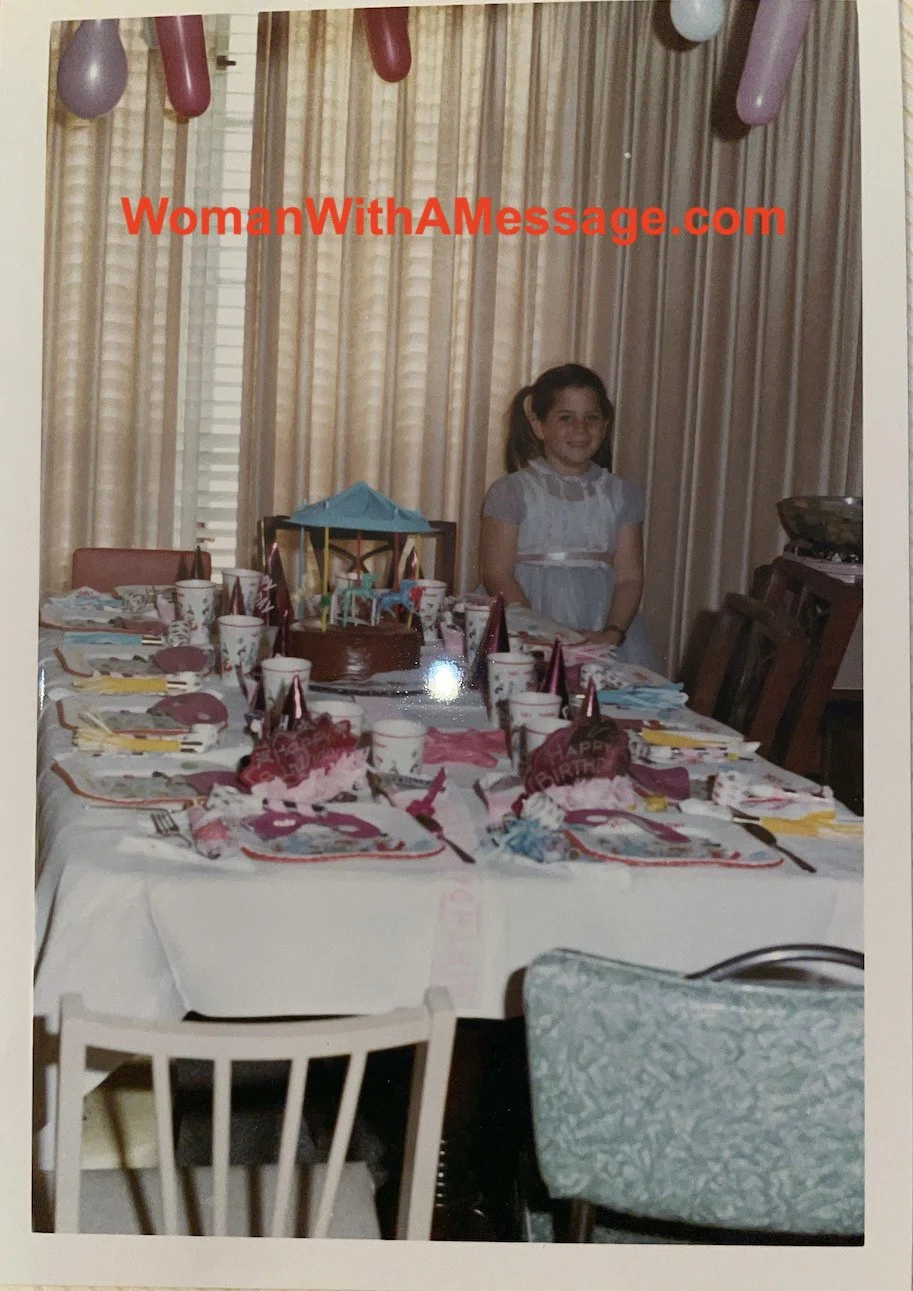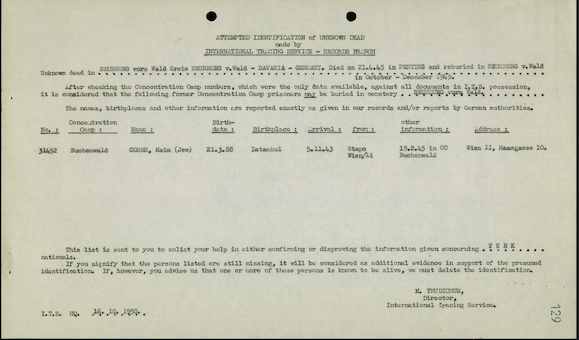Link to Family Tree to understand family relationships.
As we’ve seen in earlier posts, the Joint Distribution Committee (also known as the Joint) helped many of the world’s Jews during and after World War II. The Joint helped wherever they saw a need, including those who might have fallen through the cracks. One group was prisoners with Turkish citizenship who were part of a March 1945 prisoner trade. They had been put on a ship to Istanbul to be repatriated by Turkey. Unfortunately, Turkey did not recognize the citizenship of most of these refugees, who ended up imprisoned again in Istanbul. Penniless, homeless, and not having had contact with the outside world for years, these poor people needed help of all kinds to find somewhere that would welcome (or at least accept) their presence. My grandmother Helene, as the wife of a Turkish citizen, was one of these prisoners. We’ve read about her experience in earlier posts, as well about my experience researching the online JDC Archives to find documents related to her experience.
Upon the prisoners’ arrival in Istanbul, representatives of the Joint were concerned about the costs related to the 148 prisoners who arrived on the SS Drottningholm (see the April 20th post). Today we see excerpts from several memos from the JDC Archives from November 1945 regarding the remaining prisoners, including Helene.
From a November 9, 1945 letter from E.L. Packer, the First Secretary of the American Embassy in Ankara to Arthur Fishzohn of the Joint in Istanbul:
Referring to my letter of September 26, 1945, I take pleasure in informing you that Mr. Celal Osman Abacioglù, Director General of the Department of Consular Affairs of the Ministry of Foreign Affairs, telephoned me today to inform me that orders had been issued to Istanbul to permit the transfer of the Jewish refugees from the S.S. Drottningholm, who are now living at Moda, to Burgos, as requested.
We saw excerpts from the earlier mentioned letter in the September 25th post, where we learned of efforts to cut costs by finding a place to relocate the remaining 49 refugees.
From a November 13, 1945 letter from Charles Passman from the Joint in Jerusalem to Arthur Fishzohn:
…This has been an exceptionally costly affair, but it cannot be helped. I only hope that this matter will be liquidated soon, so that it should not continue and involve us in additional expenses….
From a November 20, 1945 letter from Arthur Fishzohn to G. Ladame, Assistant Delegate of ICRC in Turkey in Ankara with the Subject line: “Re SS ‘Drottningholm’ refugees”:
…I should like to correct the statement in my letter… of November 7th, wherein I advised that the number of internees had been reduced to 46. Not three but only one person… was released,… the figure of 49 must still be dealt with.
On November 13th we obtained the release of… who left Istanbul … for Palestine on the same day.
1. The 48 individuals whose cases must still be disposed of:
[lists by destination country, the majority with visas to return to their home country]…
e) The remaining 2 individuals desire to proceed to the countries listed opposite their names….
COHEN, Helena UNITED STATES (for which country she has already obtained a visa)
In the April 19th post, we saw transit visa stamps for several countries on Helene’s Affidavit in Lieu of Passport which was issued on November 28, 1945.
From a November 21, 1945 letter from Arthur Fishzohn to Charles Passman, with the subject line “Re SS ‘Drottningholm’ refugees”:
Mr. G. Ladame (assistant to Gilbert Simond of the International Red Cross, Ankara) who has just rerutnred from Geneva, has asked me for information on the “Drottningholm” group still interned here. He states that Geneva is interested in this situation.
Mr. Simond’s office has been kept informed by me, from time to time, on the status of the “Drottningholm” affair….
I am glad to be able to inform you that the SS “Tan” left this afternoon for Marseilles with the 15 “Drottningholm” Belgians aboard. This will reduce the total number of “Drottningholm” internees to 33. Transportation for that group plus an additional 14 French repatriates, who have been on our relief rolls here, making a total of 29 persons, is to be paid for by Hicem Istanbul….The money…was advanced by me, and …the Hicem office here will arrange for the reimbursement of this amount to us here, as soon as his office in Paris cables it to him.
I am glad to report that, on November 17th, we transferred the remaining internees to a house in Fener-Bagçe, near Istanbul….
I have not yet received the $10,000 for which we have applied to New York in connection with these “Drottningholm: refugees. I guess, however, the money will be reaching me here very soon….
Copies of this letter and also of letter to Mr. Ladame are being forwarded to Paris and New York.
According to the Shoah Resource Center, HICEM was a merger of three Jewish migration associations.
In addition to providing context for my grandmother’s Istanbul letters, the JDC documents related to this group of prisoners give us an understanding of the bureaucratic hurdles and delicate diplomacy required to help those who arrived without any resources or support. We see that it required the assistance of and intervention by many agencies from across the globe.


































